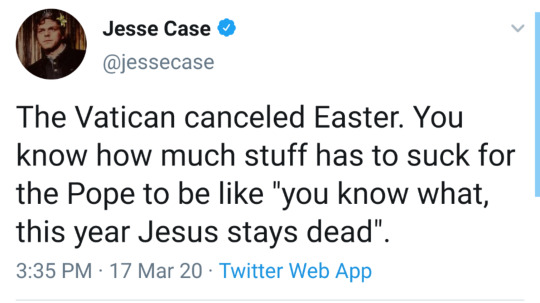Natalie | 19 | She/Her | Here for my fellow LGBT+ Christians feeling like they're a paradox | Inbox is currently open :D
Don't wanna be here? Send us removal request.
Text
It’s been said before but:
In Jesus’s crucifixion we learn that the powers that be are violent, untrustworthy, and illegitimate.
In Jesus’s resurrection we learn that the powers that be do not have ultimate power or the final word.
That is the basis of my politics - that the status quo is violent and evil, and that there is hope for us to fight back.
2K notes
·
View notes
Photo





I can’t recommend Melanie Gillman’s webcomic As the Crow Flies enough for anyone who thinks the story of a Black queer kid and a white trans girl supporting each other through a cissexist White Feminist™ Christian camping trip sounds interesting.
____________
[image description: panels from As the Crow Flies in which three middle school girls sit on the ground in front of a mountain lake with a background of rocky cliffs and green shrubbery. One of them, Adelaide, is white with black hair and bangs, a pointy nose, and a tank top. In the middle is Charlie, who is black with short black hair, glasses, and a green shirt. Last is Sydney, a white girl with shoulder-length orange hair, a black shirt, and a green skirt. Here is the dialogue they share in speech bubbles throughout the depicted panels: Adelaide: “Sort of related to that – do you ever wonder…why does everyone call God a ‘he’ anyway? If God really is the infinite, all-encompassing being everyone says – why call God a ‘he’? Wouldn’t that be – sort of a limitation?” Charlie: “I have trouble with the idea that God could probably be any gender, but ‘just happens’ to be the gender with the most privilege.” Adelaide: “Especially a God we’re supposed to believe is a champion of the poor and the meek.” Charlie: “Haha, right. Even the way people paint God – God almost never looks like most of the people on the planet. Just the most well-to-do slice of it.” Adelaide: “Most of them aren’t very historically accurate, either.” Charlie: “Yeah, that’s the thing people always bring up. But it’s also – what do all those paintings say about which bodies we think are and aren’t capable of godliness?” Sydney: “It’s telling how people act like it’s an insult if you describe God any differently. Like - try calling God a ‘she’ in church. But I mean, why not?? It’s not like God ever came down and said, ‘Hey Abramosesbediah, just wanted you to know I’m a pasty straight dude’” Adelaide: “Seems like the fairest thing would be to keep shaking up the depictions.” Charlie: “Hang a few paintings where God’s a Peruvian grandmother.” Sydney: “A Black women’s wrestling champ!” Adelaide: “A kid in a wheelchair.” Charlie: “Maybe…someone who doesn’t need a gender at all?” Sydney: “A femme lizard-human-cyborg hybrid.” / end id]
958 notes
·
View notes
Text
Thinking about Tolkien, and how he was an orphan, and came of age just in time to be traumatized for life by the unprecedented horrors of WWI, where he watched most of his friends die, and then returned to a home indelibly changed, and lived to watch it all happen again to his children.
And still he believed in (and taught, and vehemently argued for) eucatastrophe: a sudden and favorable resolution of events in a story; a happy ending.
His stories are full of darkness and danger, fear and sorrow sharp as swords, sacrifice, desperate heroism, loss, hurt.
Theses things are real. He felt them. We all feel them.
But you know what follows those things? Healing, hope, and the sweet dawn that follows the darkest hour. Bonds forged in fire. Fellowship. Learning. Wisdom to overcome. Love that outlasts death and destruction.
This wasn’t wishful thinking or mere escapism. He lived it. He fought for it. He kept on writing for the sake of his friends who didn’t live long enough to write their own stories. He knew death wasn’t the end.
He considered it a sacred duty to tell others. (Do you like C. S. Lewis? Yeah, thank Tolkien.)
And here his stories stand today, waving their banners, rallying the troops, more popular and beloved than ever. Tolkien belonged to what we call the lost generation. Do you realize how many writers WWI produced? Do you realize how countercultural Tolkien was, creating legends of light in the darkness of the trenches, penning the words not all those who wander are lost that we now slap on bumper stickers and emboss on journals and stitch on hoodies and tattoo on our bodies? (Even Lewis was still writing sad, bad poetry at this point.)
This is the power of faith. And Tolkien had it.
So, in summary, I guess… To all the modern nihilist storytellers who’ve never missed a meal and are getting filthy rich by selling their sad and unsatisfying “endings” as somehow truer and braver and more enlightened: You are cowards, everyone can see and sense it, and I sincerely hope you don’t take a single soul with you into that abyss. I pray you take the hand that’s offered you if and when you decide to climb out of the hole you’ve created with your muddled and meaningless worldview. There is warmth and hope and even laughter waiting for you in the light.
And to anyone struggling to keep up the fight today, remember Tolkien.
“There is a place called ‘heaven’ where the good here unfinished is completed; and where the stories unwritten, and the hopes unfulfilled, are continued. We may laugh together yet.”
9K notes
·
View notes
Text
protestants: god is not an absent father! talk to god like a friend! god is always with you! bring your problems to god, no matter how small! it’s not at all weird to call god “daddy!”
catholics: god is far too important to give a fuck about your lost keys or your algebra exam. please address your petty concerns to one of god’s ten thousand holy secretaries. if it’s really important, consider asking his mom.
153K notes
·
View notes
Text
Covid is not over and black lives still matter. Stop trying to "go back to normal" when shit is still happening.
Stop going on trips and going to restaurants without masks.
Keep educating yourself and protesting and calling and donating and signing petitions.
Wear a mask. End white supremacy. Defund police.
I know it's tiring but it's not over for either thing even though people are pretending it is. I know the overlap is exhausting. But be safe, social distance, and keep fighting the good fight.
144K notes
·
View notes
Text
Now what? After 3 weeks of protests and educating ourselves and educating others, how do we keep the momentum going for this civil rights movement? How do we make permanent change?






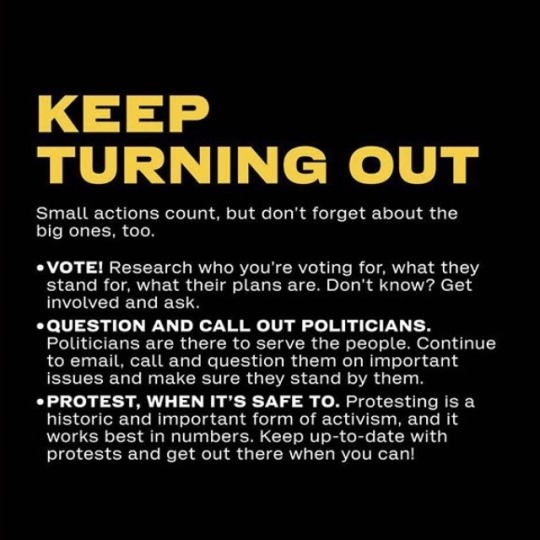

X
80K notes
·
View notes
Text
I support the goals of Moses and #LetMyPeopleGo but I’m disappointed to see what used to be peaceful protests take such a violent turn :( Politely asking Pharaoh to free the Israelites from slavery is more effective than unleashing plague after plague on Egypt. And now I hear that a lot of Israelites are out destroying their own communities by tagging their houses with some kind of gang sign? that’s painted with animal blood? What does that even accomplish? I agree that a whole people being in bondage and having their babies killed is kind of messed up, but it’s still never okay to destroy people’s property with hail and locusts. They need to show more respect to the people who’ve been systemically slaughtering them. Violence never solved anything :( Two wrongs never make a right :( :(
53K notes
·
View notes
Photo

El Cristo Negro de Daule,
ruega por nosotros.
El Señor de los Milagros,
ruega por nosotros.
Señor de las aguas,
ruega por nosotros.
Dios de la luna y la noche,
ruega por nosotros.
A beautiful piece I commissioned from @anajuise of the Black Christ of Daule, Ecuador. Patron of the Guayas region, Black peoples of the Americas, of the river Daule, the moon and the night.
I have long been devoted to this Black Christ and am writing a book about him, and working to publish one paper already! It was so wonderful to see him portrayed as the “Ecce Homo” or “Behold the Man”. @anajuise really brought him perfectly to life. ❤️
⭐️PLEASE DO NOT REMOVE CAPTION OR CREDIT⭐️
1K notes
·
View notes
Photo
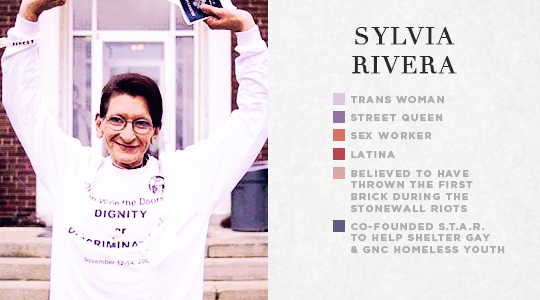
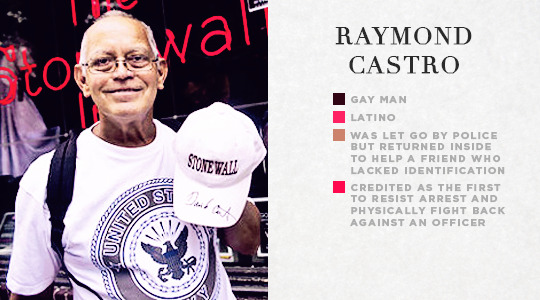
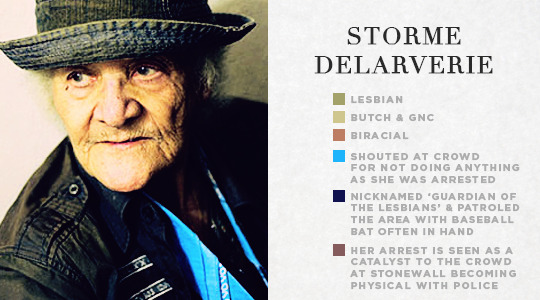
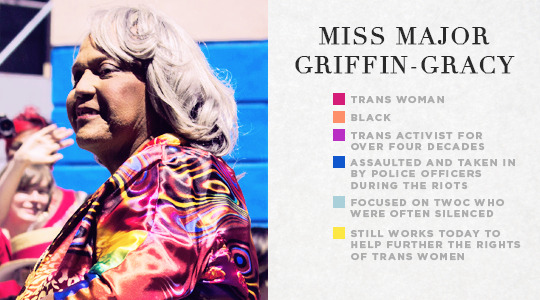

Some of the principle actors of the stonewall rebellion
134K notes
·
View notes
Text
not to have a take but i think a lot of the reason some christian/ex-christian gays still love veggie tales is because it never told you "If You dont Do This God Will Be Mad At You" that was so often shoved down throats like it was always positive messages and like "even if you make a mistake you can make up for it" and it focused on more Being a Good Person instead of making your whole identity the fact that you're religious
also they ended literally every episode with "And Remember! God made You special, and He Loves you Very Much" and like especially for groups harmed and isolated by the church like the lgbt community like thats such a good message and it really just makes you feel okay like yk idk if i believe or not but whenever i get in a Bad Rut im like well Im Special and Loved Very Much and like thats so fucking comforting and also larry is gay and the songs are bops
7K notes
·
View notes
Text
honestly missionaries are evil. the idea of traveling the world to tell people Who Didnt Fucking Ask that their beliefs are wrong in the hopes that theyll adopt your beliefs seems sinister
325K notes
·
View notes
Text
It’s been said before but:
In Jesus’s crucifixion we learn that the powers that be are violent, untrustworthy, and illegitimate.
In Jesus’s resurrection we learn that the powers that be do not have ultimate power or the final word.
That is the basis of my politics - that the status quo is violent and evil, and that there is hope for us to fight back.
2K notes
·
View notes
Text
Jesus, on multiple occasions: I’m going to die very horribly, but then I will rise from the dead three days later.
The women disciples, three days after Jesus’ death: The tomb was empty, and angels appeared and said Jesus is risen.
The Apostles:

6K notes
·
View notes
Text
don’t look at me yet dude i’m still rendering
106K notes
·
View notes
Text
“The woman who was deaf began to tell us about this dream that she had about what heaven was going to be like. And she talked about how she met Jesus and how Jesus was everything that she thought that he would be. And then she said, ‘And his signing was amazing.’ Now her vision of heaven wasn’t that she should suddenly hear things, but that the barriers that stopped other people communicating in the way that she did were broken down. And she was able to communicate with Jesus in the way she’d always communicated with Jesus.”
- John Swinton in a 2015 Lecture
4K notes
·
View notes
Note
i'm not christian so i apologize if this is a gross overgeneralization but it's weird how Certain Types of christians seem to exclusively prefer to depict and refer to jesus as a baby or a dying/dead martyr... almost like Alive Adult Jesus might have some opinions that don't gel with their lifestyles lmao
You are definitely not alone in observing this, anon! In fact it’s a perennial discussion both among academic theologians and in the pastoral community.
If you’re into Christian history, there are definitely periodic trends in terms of which aspect(s) of Jesus are most emphasized, and they are unsurprisingly very much related to the social and cultural context of the people “doing theology.”
So for example, I’m personally most familiar with early/classical and early medieval Christian history. The earliest Christology was focused primarily on the resurrection (with Jesus’ death seen as an important step on the road to resurrection, but the emphasis always being on resurrection, not the death in and of itself), and the language used by the early church was explicitly the language of liberation. Salvation meant freedom from sin and death, and crucially, sin included what we might now call “social sin”: that is, the sin of inequality in this life. The first Christians preached resurrection, and as a direct result of that, they also preached communal living and a welfare system that would see every member of the Body of Christ taken care of.
They certainly didn’t get everything right. St. Paul encouraged Christian slave owners to free their Christian slaves and consider them siblings, but he never actually called for an end to the institution of slavery or acknowledged it as inherently evil. But we have historical records of Christian communities where the common social divisions of classical Rome were more or less completely broken down, where slaves and free, men and women, people of different cultural and class backgrounds all interacted as equals. In fact, the oldest versions of Christian baptismal creeds we have (which can be found as quoted bits of poetry in a couple of Paul’s letters) make explicit reference to egalitarianism as the greatest hallmark of Christian life.
And that was what worried the Romans. If you grow up in almost any Christian tradition, you’ll hear stories of the martyrs. Christians love our martyrdom stories, you’re absolutely right about that, anon. But all too often we miss the actual reason for the early martyrs’ deaths. They weren’t killed for being “followers of Christ” in the kind of generic, near-meaningless sense of “belief” that so many American Christians often consider to be “following Christ.” The Roman imperial authority, as a rule, did not particularly care who its subjects worshiped, so long as they paid their taxes, didn’t rebel against Rome, and didn’t rock the social boat. The majority of early Christian martyrs were killed for things like refusing to sacrifice to the emperor (which was seen as a symbolic act of rebellion against Rome, as making sacrifices to the emperor was a pledge of political loyalty), refusing to serve in the Roman military, rejecting the authority of Roman governors, upsetting the social order (with all that egalitarianism), and, in the case of the vast majority of women martyrs, refusing to get married (which is another form of upsetting the social order, and a particularly dangerous one because it represented a statement of female independence, both socially and financially).
In the early church there was a heavy emphasis on the the death and resurrection of Jesus, but that doesn’t actually mean that his life was overlooked. It would be truer to say that, for those early martyrs, his life and teachings were intimately tied up with his death and resurrection.
Because here’s the thing that we American Christians, in particular, often either gloss over or entirely forget: Jesus, too, was killed by the Romans. He lived as a second class non-citizen in an occupied country, and he was killed by the occupying authority because he was seen as a threat to that occupation. That’s a historical fact that gets covered over for a variety of reasons, not least the fact that the gospels themselves actively attempt to disguise it. (Why? Because the gospels were written by and for people who were still living under that occupying authority, and who were therefore concerned to make it clear that they were not, in fact, an existential threat to Roman power and did not need to be eliminated.)
And, of course, once Christianity became the official religion of the Roman Empire, it was also in a position to benefit from the privilege of imperial power.
Jesus’ life - and his death - were profoundly anti-imperial. That’s…a really awkward fact for a religion that has become the backbone of empire to reckon with. So the emphasis of Christology changed. The emphasis now was on Christ as heavenly king, conqueror, ruler of a kingdom of God which looked, for all intents and purposes, exactly like a heavenly version of the Roman Empire.
And American Christians are very much in the position of those imperial Roman Christians. America is an empire. We have vast wealth and resources, much of which we’ve obtained through war and colonial exploitation. We are literally a country built on the backs of slaves, and we used the Christian scriptures to justify that slavery. We use it to justify slavery still. We have a thousand metaphorical explanations for what Jesus may have meant by “sell all you have and give it to the poor, then come and follow me,” because we are terrified of taking him literally. We are profoundly concerned with policing sexuality and gender because that early message of Christian egalitarianism, where there is in Christ no slave or free, no male or female, but all are one is every bit as threatening to the American social order as it was to the Roman order two thousand years ago. We don’t like to talk about Jesus’ cry for justice, about his eager anticipation of the toppling of empire, because we are that empire.
But that’s conservative white American theology. The liberation theology of Latin American, the post-colonial theology of Africa, the womanist theology and the poor people’s campaign arising out of the African American experience of Christianity - it’s no accident that these theologies are far more focused on the life and teachings of Jesus. Because any attentive reading of the gospels cannot fail to notice that, more than any other topic - practically to the exclusion of any other topic - Jesus is profoundly concerned with the liberation of the poor and oppressed.
3K notes
·
View notes
